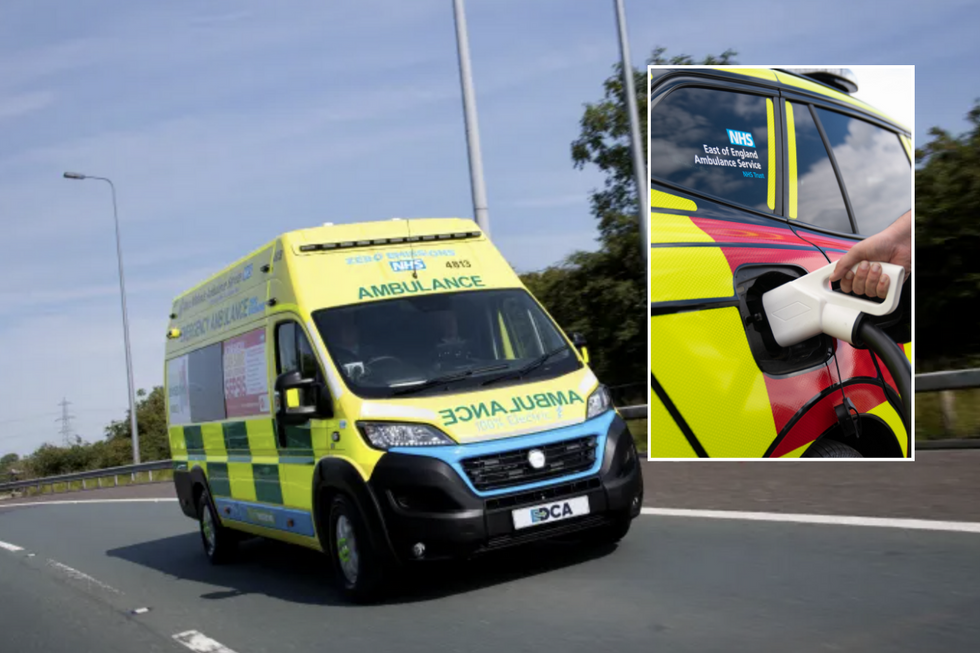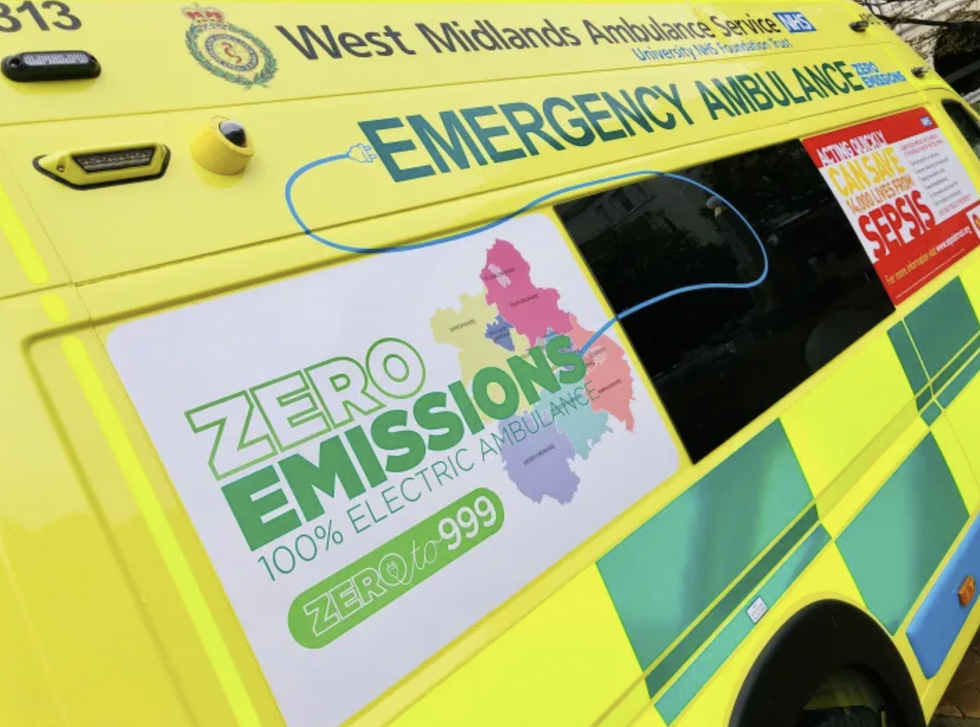Electric-powered ambulances spark panic amid fears over patient safety

Paramedics have expressed their concerns that the new vehicles could take too long to recharge
Don't Miss
Most Read
Electric ambulances could put patients in rural areas at risk due to long recharging times according to paramedics.
The NHS is set to introduce the vehicles as part of a drive for net zero and to combat emissions.
Under the scheme electric ambulances will be trialed across the North West, East of England, Yorkshire, South West, and London at a cost of around £150,000 each.
They have already been introduced in the West Midlands, although last year board papers from the West Midlands Ambulance Service revealed major concerns over charging.

The ambulances have already been rolled out in the West Midlands
|PA/WMAS
A whistle-blower told the Telegraph: “Every part of the NHS is under-resourced and waiting lists remain historically high, but commitment to green zealotry remains unchanged.
"The amount of resources dedicated to the green agenda is astounding, and the fact that it is now impacting clinical decision-making is, I believe, grossly unethical."
An evaluation of the pilot scheme for electric ambulances in the West Midlands found the ambulances took up to four hours to charge, only had a range of 100 miles and travelled an average of 70 miles between charging, with the papers warning "range and recharge time is a significant limiting factor."
There was also a concern about a lack of capability for efficiently covering rural areas. The report said: "Rural areas in particular are covering twice this mileage and more in a shift" adding that, as a minimum, ambulances need to be able to cover 160 miles.
LATEST DEVELOPMENTS

There were come concerns raised about the range of the new ambulances
|WMAS
Paramedic and spokesman for the College of Paramedics Richard Webber said he could see the benefits of such schemes in urban areas, for short distances.
He said: "I think they really need to produce the evidence that this is safe before this is rolled out beyond urban areas. I would be very wary of that.
"If I have got a very sick patient, someone who has had a heart attack and I am trying to get them to hospital I don’t want to be worrying about the battery."
He added "staff will want some convincing" urging the health service to "go very cautiously" pushing the green agenda when safety was at risk.

Mark Francois MP has urged ministers to think about what the NHS is for
|Getty
The emergency medical consultant said: "The worst-case scenario is running out of juice with a patient in the back. I think this is untested territory, I would rather they started testing all of this in Patient Transport Services, where patterns are much more predictable, than in emergency care."
Conservative member of the public accounts committee Mark Francois MP said: "Florence Nightingale once famously said that ‘the very first requirement in a hospital is that it should do the sick no harm.’ While achieving net zero is a laudable aim, we cannot allow it to trump common sense, especially if it compromises patient safety.
"The most important consideration must be patient safety, comfort and wellbeing."
An NHS spokesman said: "NHS services must always put patients first when procuring products and it is also right we seek green alternatives, but only when they save the taxpayer money. The new electric ambulances are benefiting thousands of patients, and they could help deliver annual operational savings of £59 million."











